What do you do when the liberation of the homeland is in the hands of a group that opposes the liberation of women?
Among the many issues that have occupied solidarity movements worldwide in the latter half of the twentieth century have been two bleeding sores – South Africa and Palestine. One resolved itself, unhappily perhaps, but the other continues to bleed. The apartheid state in South Africa eventually became a pariah state, morally unjustifiable, while Israel’s apartheid state has grown in strength and even managed to acquire a degree of moral legitimacy by running a successful campaign to blur the lines between anti-Zionism and anti-Semitism. For those who have stood with Palestine, the issue became even more muddied when the Palestinian struggle split between the ‘secular’ West Bank run by a corrupt, and increasingly authoritarian, quisling administration, the Palestine Authority (PA) and the religious fundamentalist stranglehold of Hamas on Gaza.
Long running freedom struggles are often undermined by the Machiavellian tactics of the occupying power – in this case, a little known fact is that Hamas was the baby nurtured by Israel. And Israel needs Hamas in situ otherwise how else would it maintain its victimhood narrative and justify its brutality towards the Palestinians? Hamas too needs Israel to position itself as defender of Palestine.
The quandary that this poses for some supporters of Palestine is how to support their struggle against occupation without empowering Hamas. An activist in Palestine Solidarity Campaign UK feels this question is an irresponsible one because it supports the Israeli agenda of separating Gaza from the rest of Palestine. However, Fidaa Zaanin, a Palestinian feminist who writes about the Tal’at mobilization which brought women out in street protests in twelve cities of Palestine in September 2019, refers to its slogan of “No Free Homeland without Free Women” to argue that ‘the liberation of the homeland and the liberation of its women go hand in hand.’ But what do you do when the liberation of the homeland is in the hands of a group that opposes the liberation of women? The EU and the US channel their aid to Palestine via the PA, exploiting their internal conflict with Hamas as a way of isolating the latter. But it’s also an issue for ordinary activists with a progressive agenda who do not support the anti-woman and anti-LGBT policies of the Hamas administration.
The injustices of the occupation are legion, diminishing every aspect of Palestinian lives and need no recounting here. A recently produced report by UN Women outlines the dire humanitarian condition in Gaza that has been aggravated by the Israeli bombs in May – hyper-unemployment, food insecurity, electricity blackouts, sanitation disasters, lack of access to drinking water, Covid-19 and severe property damage – all of which have a disproportionate impact on women.
Funding humanitarian work is one way of sidestepping the political issues raised by Hamas’s governance. Anna Sethi, founder of the London-based Brent Friends of Palestine who raise money for the Palestine Trauma Centre (UK) in Gaza, acknowledged that anxieties around Hamas are often expressed by people they meet while collecting donations or distributing leaflets in the street. Yet others are disheartened by the turn taken by the political representatives of the Palestinian cause and stand helplessly on the sidelines.
I hoped to talk to representatives of women’s and LGBT organisations based in Gaza to find out about the Hamas-shaped shadow hanging over them. I discovered that there were no LGBT organisations who would be at extreme risk in Gaza but a substantial number of groups in the women and human rights sector would. Organisations such as the Women’s Affairs Centre, Aisha Association for Women and Child Protection, General Union of Palestinian Women, Palestine Human Rights Centre, Centre for Research, Legal Consultation and Protection for Women in Gaza (CWLRC)and the Community Media Centre (CMC) are all playing a part in advancing human rights and women’s rights in Gaza. This list is by no means exhaustive.
However, many of the activists I contacted were not prepared to be openly critical of Hamas. One activist in the West Bank explained that ‘people are very sensitive about the narrative on Palestine especially when it comes to resistance – we do stand with the resistance even as secular people who may not agree with them on the social issues especially during such a difficult time.’ According to her, the May conflict which began with Hamas firing rockets on Israel in protest against Palestinians facing eviction from their homes in East Jerusalem has forged Palestinian unity across Israel, West Bank and the diaspora like never before. (The Israeli Supreme Court has since ruled that the Palestinians can stay on as ‘protected tenants’ if they sign a document recognising that Jewish settlers owned the land, a proposal that has been rejected by Palestinians.) Here is a militant group prepared to defend the national liberation cause. Whatever difficulties are posed by their politics are a matter for internal negotiation not external exposure. In any case, religious conservatism is not confined to Gaza. Even in the secular West Bank, social conservatism makes life difficult for women and LGBT groups fighting for their rights.
Interestingly this was not a view shared by the women activists I spoke to who live in Gaza. Zainab El Ghonaimi, Director of CWLRC, was trying to come to terms with the devastating loss of 22 members of her family in the latest Israeli onslaught when she spoke to me at length via Zoom. It was her view, as well as that of Andaleeb Adwan, director of CMC, that the popularity of Hamas had increased in the Arab world outside Gaza but not in Gaza itself where people were angry because they did not believe that the latest provocation by Hamas was justified.
In past conflicts, Israel targeted buildings where Hamas members lived; this time it was so random, according to both El Ghonaimi and Adwan, that the entire population cowered in fear. Adwan, who wrote a heartbreaking account of the 11 days of Israeli bombing says, ‘Enough. We are fed up of this life in Gaza’. She believes that Hamas uses military resistance to increase its popularity, ‘Even Fatah supporters in the West Bank and Christians in East Jerusalem are ready to vote for them now.’
CWLRC runs the only shelter for women escaping domestic violence apart from the one opened by Hamas which, El Ghonaimi says, is run like a prison with policemen at the gate controlling the women’s movements. Young girls running away from forced marriage are likely to have their marriages arranged by Hamas officials. Even seven years after opening their refuge, CWLRC was not allowed to accommodate women overnight until one day in 2018 when the Attorney General referred a woman to them because as Zainab puts it, ’Hamas became finally convinced that we were doing good work.’ Or as Islah Jad, feminist scholar, argues in her book Palestinian Women’s Activism: Nationalism, Secularism, Feminism as to how Hamas shifted its position towards women in order to compete with the secular nationalist movements.
Adwan believes that the Hamas shelter has improved in recent years partly in response to civil society pressure: ‘they discovered they were wrong to confront the community on social issues.’ I ask if it is to improve their electoral popularity. ‘No’, she says, ‘in Gaza they can rely on a rock solid base of men who have sworn an oath of loyalty, the al bay’ah’, which means that they will support Hamas in perpetuity. Along with their families this comes to around 300,000 people, not including Hamas sympathisers.
Adwan’s centre focuses on raising awareness of violence against women and youth unemployment, among other issues, on social media and the traditional media, holding policy makers to account on these issues and training law and media graduates in the production of media content. She describes the informal tribal system that is used extensively by the Hamas police to deal with violence against women. Every family has an elder, a mukhtar, linked together with thousands of other mukhtars, whose decisions in these matters favour the men over the women. CMC campaigns against this system and holds meetings with the police to encourage them to abandon this course of action which is justified on the grounds of keeping the family intact.
The formal legal system is only marginally better – the law dealing with domestic violence is weak and outdated. Personal laws are governed by sharia covering issues that mostly affect women such as marriage, divorce, child custody, maintenance, and inheritance. The primary domestic codification of personal status laws in Gaza is the 1954 Law of Family Rights. The use of personal family law means that Muslim women have to engage with sharia courts which are discriminatory to women with regard to custody of children and inheritance.
CWLRC, along with other women’s rights organisations, are in continuous negotiations with the sharia judges to improve matters. They have notched up some successes: on divorce, women can get custody of the children, beyond the ages of 9 for a boy and 11 for a girl, if the husband has been violent towards the children; and widows can now keep custody of their children.
These are small victories and the room for manoeuvre is tight. Every single campaign has to be carefully calibrated to be sure of success. They chose the right political moment to start the campaign for widows to gain custody of their children: after the war in 2009 when many Hamas fighters were killed and Hamas was keen to ensure that custody of the children went to their daughters.
According to El Ghonaimi, Hamas’s attempt to introduce Islamicisation will not succeed. She says, ‘No Islamic state in Gaza, not in a hundred years.’ Hamas tried to introduce an Islamic penal code and failed. Ditto with segregation between men and women on beaches. They introduced guardianship rules which would have restricted women’s freedom of movement – a perfect example of the double whammy for women alongside the sealed border with Israel. These too have been reversed.
CWLRC and CMC are part of a reasonably strong civil society that will not allow such encroachments. Here is a sector that deserves support. We need no longer stand on the sidelines wondering which voices to amplify and where to send our donations.
Author
-
Rahila Gupta is a freelance journalist, writer and activist. She is a longstanding member of Southall Black Sisters, member of Women Defend Rojava UK and patron of Peace in Kurdistan. Her articles are published in the Guardian, New Humanist, New Internationalist and openDemocracy among other magazines, journals and websites.
View all posts

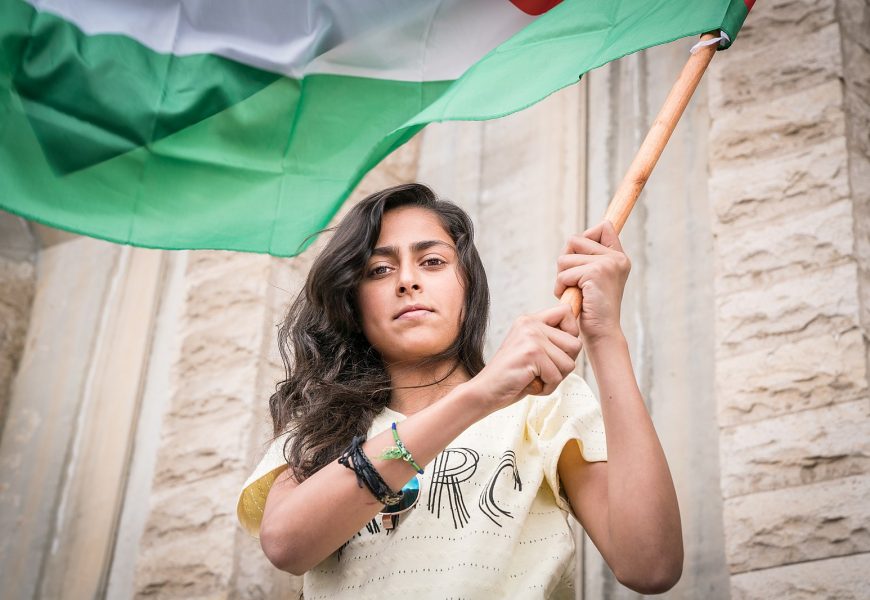
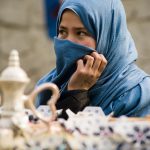
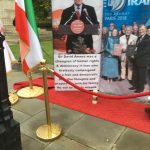
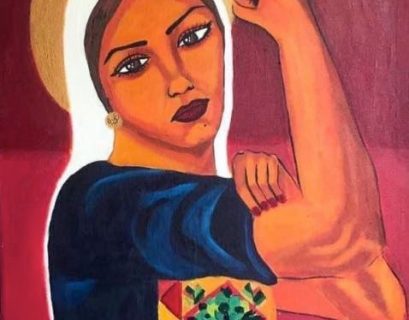
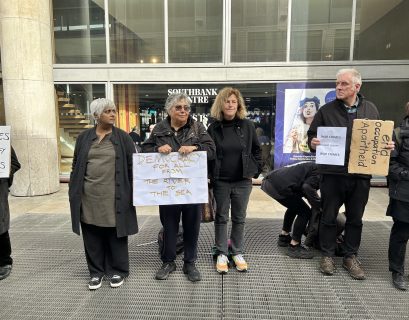
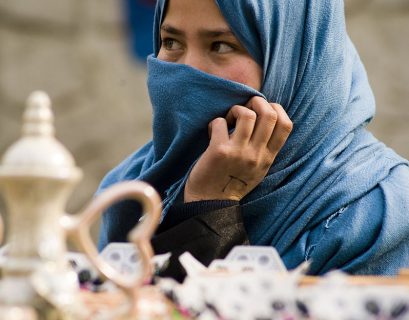

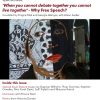
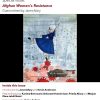
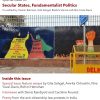

.jpg)

